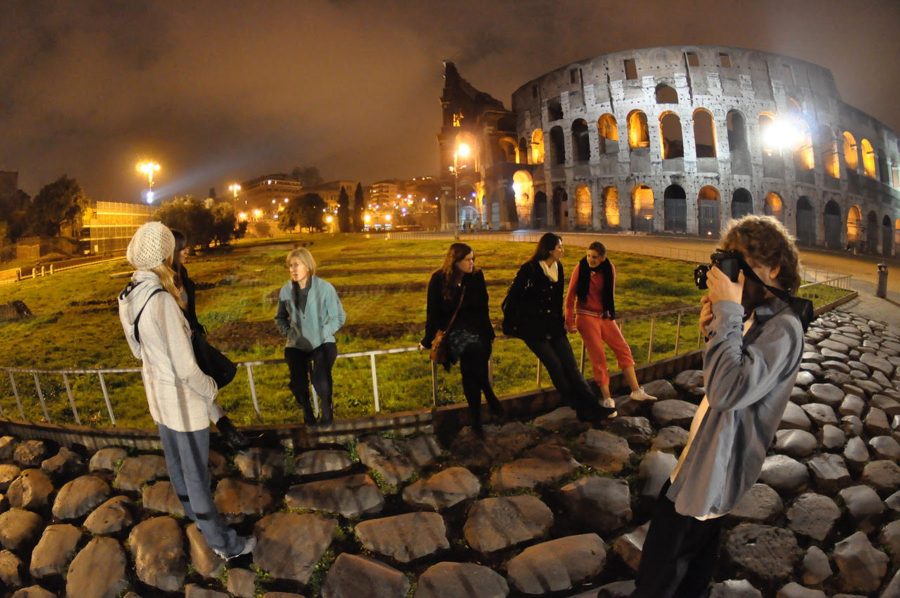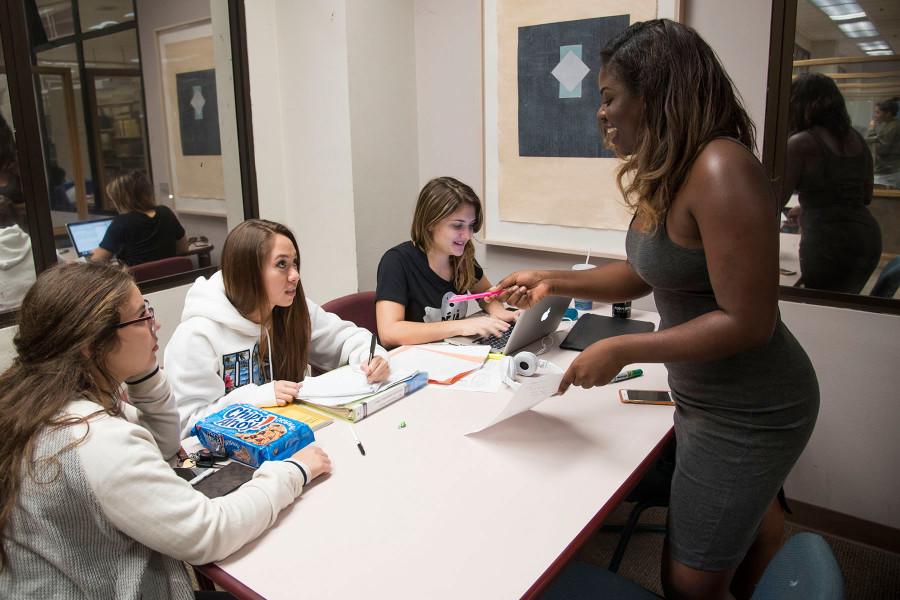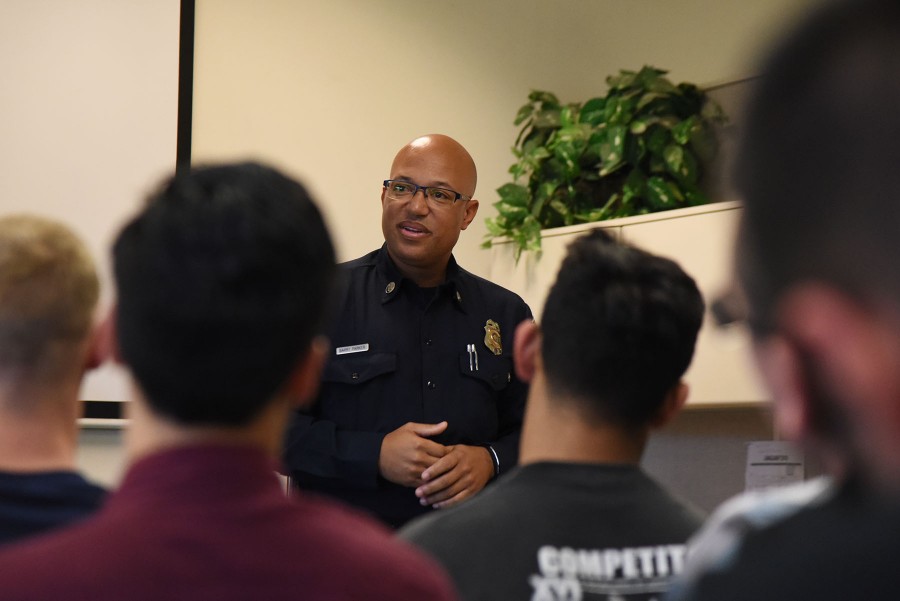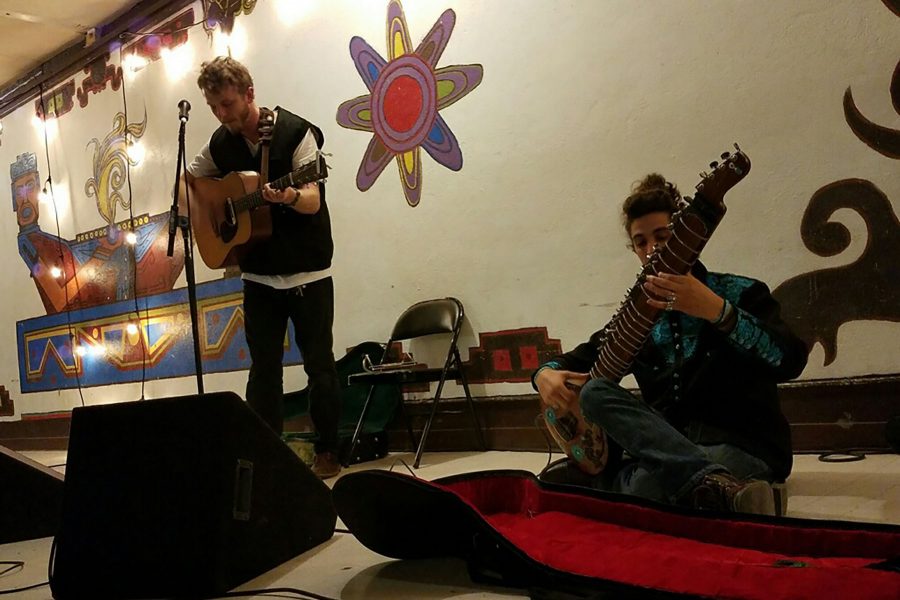City College recently cut student jobs on campus in an effort to save money as a part of the school’s major budget cuts.
In the fall of 2008 the college had 178 of the roughly 1,100 international students working on campus. So far through spring of 2009, only 82 international students are employed at the school.
According to Carola Smith, director of the international office, many international students find new ways of making some extra money.
Karina is one international student who has decided to find a job off campus well aware of the fact that it’s illegal for international students.
“I make more money than my mom does at home,” Karina said with an Eastern European accent.
She comes from a poor country and according to her she didn’t have a choice when she found a job off campus.
She works at a small, popular hotel in downtown Santa Barbara where she manages the property 32 hours a week. She makes $13 an hour, under the table, by answering phone calls and responding to emails. “I like to be independent from my parents,” she said.
Karina is 21 and came to Santa Barbara on a J-1 visa which allowed her to work in the U.S.
She decided that she liked it so much that she wanted to stay and she then switched her visa to an F-1 student visa.
International students who reside in the U.S. on a student visa are only allowed to work on campus.
If international students find a job off campus this will violate their visa status and if they get caught working off campus they might face the risk of being deported from the country.
Karina doesn’t care. “I have nothing to lose, I only get one chance,” she said.
The international office at City College requires all international students to sign a contract upon their arrival in Santa Barbara, saying that they won’t find a job off campus. Karina says that because she came on a J-1 visa and switched to an F-1 visa, she never signed the form.
She thinks that the international advisors from City College know that many international students work off campus, but she also says that if a teacher sees her working downtown he or she doesn’t care. Even though Karina knows that it’s illegal to work off campus she doesn’t plan on finding a job on campus.
“Now it’s too late to do that. I already have a job,” she said.
Karina sees the opportunity to work off campus as a good thing and she says that she improves her English a lot by working with American customers. On campus she mostly talks to international students.
Karina is not the only international student from City College who has found a job off campus.
Alice is 20 and an international student, but this didn’t stop her from working at a bagel shop in Santa Barbara.
Alice is not her real name, but she said that an English teacher from her Asian home country used to tell her that she looked like Alice in Wonderland. She came to the U.S. on an F-1 visa in 2005 where she attended one year of high school and she then moved to Santa Barbara in 2006 and started college.
“Everybody does it,” she said when asked why she works off campus.
Alice used to have a job on campus, but was fired after six months and she decided to find a job off campus instead. She says that she would rather work on campus if she could. “It’s so nice to work at school. There’s no pressure,” she said.
Alice says that she just walked into the bagel shop one day and asked for a job and that the owner didn’t care that she didn’t have a work permit. She says that foreigners hire other foreigners.
“How can I associate with business in the future?” she asked. “It feels like having a life. School is boring.” Alice was recently fired from her job off campus, but she says that her former employer is looking into hiring new international students.
According to Smith, the international advisors know that international students often choose to find jobs off campus, and that it is something they see pretty often.
Smith said that the office does all it can to prevent students from working off-campus, but some still choose to break the law.
She says that when she sees an international student working off campus, she will remind the student that he or she signed a contract and she will then invite the student to the office where she will explain how the student is violating his or her visa. She also says that it’s impossible that Karina never signed the contract.
“We are legally required to inform students,” Smith says.
She says that the U.S. government is thinking about changing the rules in about two to three years from now. Personally she thinks that international students should be allowed to work off campus because they’re bringing in gifted people.
Smith’s counterpart at UCSB, Mary Jacob, says that certain work permits such as the Optional Practical Training Permit and the Curricular Practical Training permit are very popular among UCSB’s 980 international students. She thinks that it is very appropriate for students to be allowed to work off campus in certain circumstances that are permitted by U.S. laws.
“In the 13 years that I have been at UCSB we have not had any international students caught working illegally off campus,” Jacob said.
According to Karina the education she gets from an American school is much better than the education she would get in her home country. Even though she knows that she is doing something illegal, she doesn’t see any other way of paying for the high cost of international tuition.
“If I don’t work I wouldn’t be here,” she said.
*Karina and Alice are not the international students’ real names, but they prefer to be anonymous.










